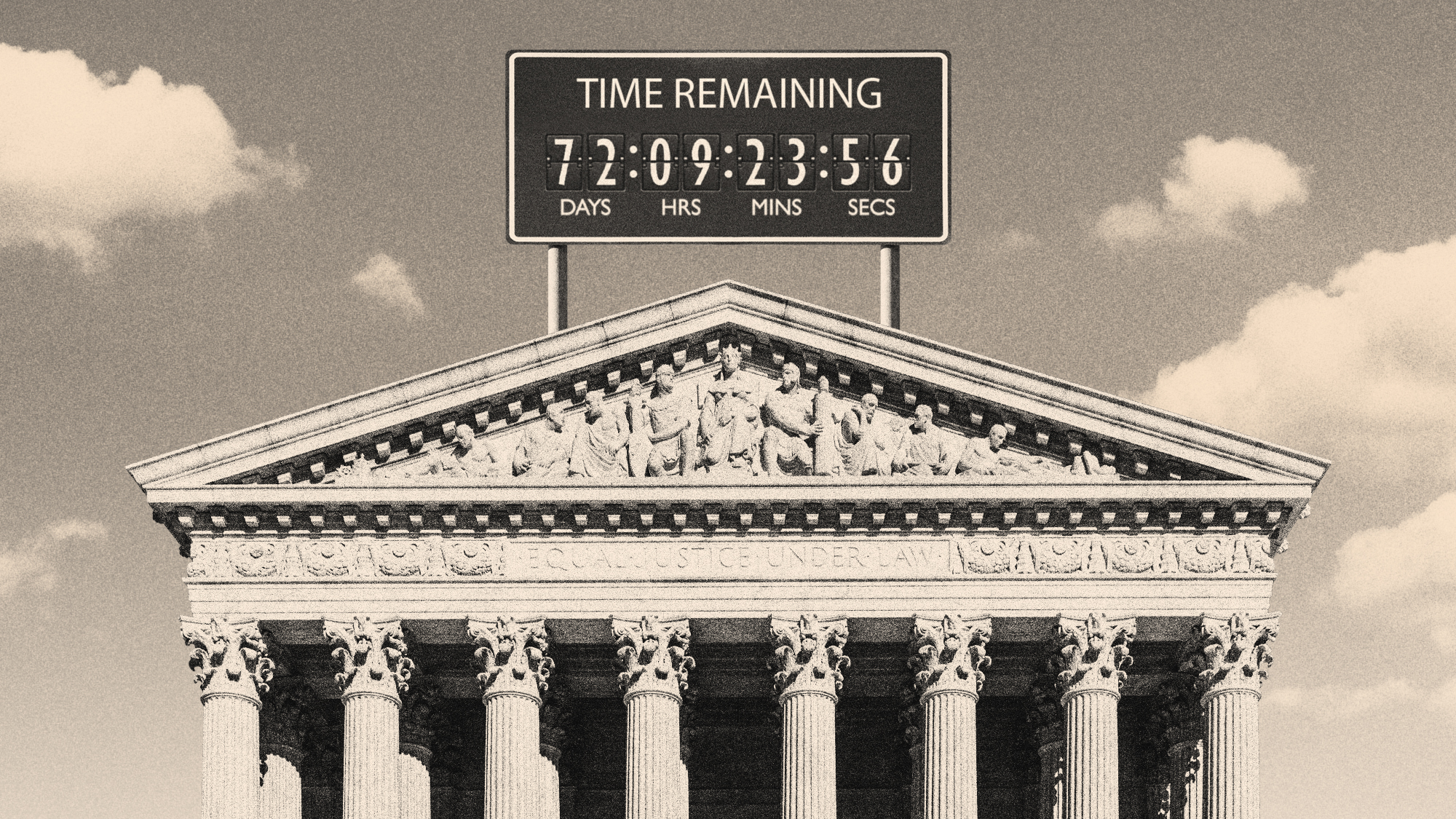The battle over Supreme Court term limits
President Biden's proposed reform meets GOP backlash


A free daily email with the biggest news stories of the day – and the best features from TheWeek.com
You are now subscribed
Your newsletter sign-up was successful
Justices on the U.S. Supreme Court have lifetime appointments. President Joe Biden thinks that should change. This week he introduced a series of proposed court reforms that include limiting justices to a single 18-year term. "We have had term limits for presidents for nearly 75 years," Biden said in an op-ed for The Washington Post. "We should have the same for Supreme Court justices." The proposal would give each president two court picks per term, he said, making the timing "more predictable and less arbitrary."
Term limits would "lead to a fairer court," the University of Pennsylvania's Kermit Roosevelt III said at Time. Right now, appointments happen only when a justice "dies unexpectedly," or when a "sitting justice feels inclined to let the president appoint a successor." But Republicans see Biden's proposal as an attack on the court's current 6-3 conservative supermajority, said CNN. Democrats want to alter the court, House Speaker Mike Johnson (R-La.) said, "simply because they disagree with some of the court's recent decisions."
An 'intensely politicized' judiciary
A big problem for Biden's proposal: Lifetime terms are written into the Constitution. It would take an amendment to write them out. "A Constitutional amendment will not pass," Ian Millhiser said at Vox. The idea of judicial term limits has been around for a while — then-Texas Gov. Rick Perry promoted the notion in a 2010 book. But that was before conservatives gained the majority. Republicans are likely to fight — and defeat — any proposal that makes changes. "Term limits endanger GOP control of the judiciary."
The Week
Escape your echo chamber. Get the facts behind the news, plus analysis from multiple perspectives.

Sign up for The Week's Free Newsletters
From our morning news briefing to a weekly Good News Newsletter, get the best of The Week delivered directly to your inbox.
From our morning news briefing to a weekly Good News Newsletter, get the best of The Week delivered directly to your inbox.
"Term limits could address some of the woes plaguing the court," legal scholars Adam Chilton, Daniel Epps, Kyle Rozema and Maya Sen said at Washington Monthly. The irregularity of Supreme Court appointments has made the process "intensely politicized" when openings do occur. No wonder: Donald Trump had three appointments in his single presidential term; Jimmy Carter got none. Biden has had just one opportunity. On such vagaries does court control depend. "Why should one president have the opportunity to appoint three times as many justices as his successor?"
Purging conservative justices?
"The left continues these moves to take over the Supreme Court because they are angry about recent decisions that have not gone their way," former Attorney General William Barr and First Liberty Institute's Kelly Shackelford said at Fox News. The term limits proposal is a "partisan move to purge the Supreme Court of conservative justices" like Samuel Alito and Clarence Thomas. If Biden's proposed reforms passed, the judiciary will become "little more than a political tool of whomever holds power."
Term limits make "enormous sense," the University of California's Erwin Chemerinsky said in The New York Times. But they're unlikely to become reality anytime soon. This means the presidential race between Donald Trump and Kamala Harris means more for the future of the Supreme Court. If Trump wins, Thomas and Alito might retire to seal Republican control of the court. Similarly, if Democrats win, Justice Sonia Sotomayor could resign to make way for a liberal successor. No reforms will change the way the Supreme Court works, at least anytime soon. "But the presidential election will."
A free daily email with the biggest news stories of the day – and the best features from TheWeek.com
Joel Mathis is a writer with 30 years of newspaper and online journalism experience. His work also regularly appears in National Geographic and The Kansas City Star. His awards include best online commentary at the Online News Association and (twice) at the City and Regional Magazine Association.
